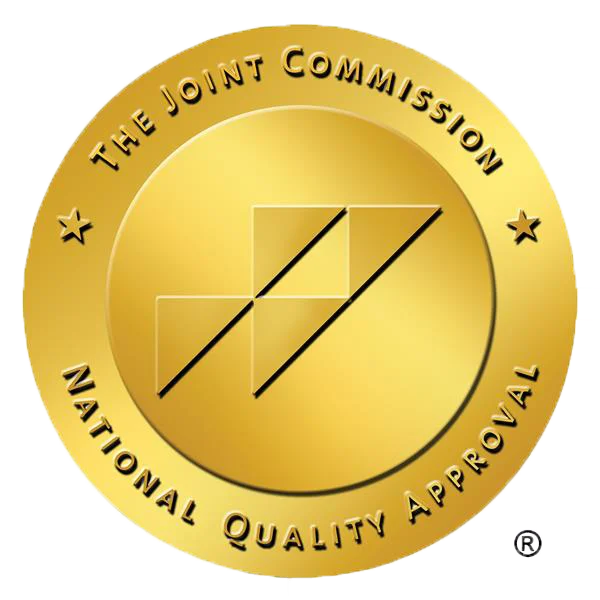Cocaine can impact every part of your life when you rely on it. Whether it started as a party drug, a way to handle work stress, or a pick-me-up when feeling low, it doesn’t take long for it to take over. Quitting can feel overwhelming, especially if you’ve tried before and struggled with the tough withdrawal symptoms. But you don’t have to face it alone. Help is here.
Detoxing from cocaine isn’t just about stopping use. It’s about making sure you’re stable—physically and emotionally—so you’re ready to take the next steps toward recovery. Whether this is your first time in medical detox or you're looking for support after a relapse, we’re here for you. With around-the-clock care and a focus on dignity, respect, and expert support, we’ll make sure you never have to go through this journey alone.
Understanding cocaine withdrawal
Symptoms of cocaine withdrawal
Going through withdrawal can be tough both physically and emotionally. It doesn’t just take a toll on your body—it can disrupt your whole life and increase the risk of relapse, especially without the right support.
Physical symptoms you might experience:
- Feeling drained or exhausted
- Trouble sleeping, like insomnia or vivid dreams
- Changes in appetite (eating more or less than usual)
- Headaches and body aches
Psychological symptoms to watch for:
- Feeling down or depressed
- Thoughts of self-harm or suicide
- Anxiety, agitation, or constant restlessness
- Struggling to focus or make decisions
- Strong cravings for cocaine
Getting help from a professional can make a huge difference as you navigate these challenges.
Available 24/7 in Colorado Springs.
Timeline of cocaine detox
Withdrawal timelines can vary, but most people go through similar phases during detox:
Psychological symptoms to watch for:
- Feeling down or depressed
- Thoughts of self-harm or suicide
- Anxiety, agitation, or constant restlessness
- Struggling to focus or make decisions
- Strong cravings for cocaine
2. Week one to two
- Emotional and physical symptoms usually hit their peak.
- Trouble sleeping, restlessness, and appetite changes are normal.
- Depression may worsen, sometimes leading to dark thoughts.
- Cravings persist, even though your body’s tolerance is dropping.
3. Week two to four
- Mood swings and feelings of depression often linger.
- Cravings might still pop up but can feel easier to handle.
- Your brain begins to adjust as it starts working without cocaine.
4. Months two to six (Post-acute withdrawal symptoms)
- Not everyone experiences PAWS, but it can happen.
- Physical symptoms are usually behind you by now.
- Some may still deal with mood swings, “brain fog,” or occasional cravings.
- Sleep problems, like insomnia, are common for many during this time.
No matter how long withdrawal lasts, Spring Grove Recovery is here to help. Our compassionate team offers 24/7 care, nutritional support, and the emotional tools you need to heal and move forward.
Risks and complications during detox
The most serious risk during detox is severe depression. Cocaine floods your brain with a "feel-good" chemical called dopamine. When you quit using it, it will take some time for your brain to adjust and start making it on its own again. During this time, you may experience extreme feelings of sadness and depression, even thoughts of self-harm.
Another risk during detox is relapse. The physical and emotional discomforts of withdrawal may tempt you to go back to using cocaine, especially if it was your primary way of coping with stress or other challenges in life. Our compassionate team of professionals is here to support you through this difficult period and help you find healthy coping mechanisms.

Medical detoxification for cocaine addiction
Evidence-based treatment approaches
Behavioral therapy for cocaine addiction
To make recovery stick, it’s important to recognize and change certain behaviors. At Spring Grove, we use proven talk therapies to help you on this journey, including:
Cognitive-behavioral therapy (CBT)
Spot and change negative thought patterns.
Motivational interviewing (MI)
Build your motivation and commitment to recovery.
Acceptance and commitment therapy (ACT)
Learn to handle tough emotions in healthier ways.
Dialectical behavior therapy (DBT)
Manage stress, control emotions, and improve your relationships.
Dual diagnosis treatment
A lot of people dealing with cocaine addiction also face mental health challenges like ADHD, anxiety, depression, or bipolar disorder. That’s why we provide dual diagnosis treatment that tackles both the addiction and the mental health issues at the same time.
Relapse prevention strategies
Recovery doesn’t stop after detox or rehab—it’s a lifelong process. At Spring Grove, we help every client create a relapse prevention plan that fits their unique journey. We also make sure they have access to aftercare resources, like support groups, so they always know where to turn when challenges come up.

Holistic and supportive detox approaches
Holistic detox methods
Cocaine detox can be tough both physically and emotionally, but there are ways to make it more manageable. With professional support, you can focus on healing your body, mind, and relationships during the process.
Family support in addiction recovery
Rebuilding relationships with loved ones is crucial in addiction recovery. It's common for family members to feel hurt, angry, or even guilty about their loved one's drug use. However, involving them in the detox and recovery process can help rebuild trust and strengthen relationships. We can help you involve your family in the recovery process so you can strengthen your support network for a solid foundation moving forward.
Support groups and aftercare planning
Detox is only the first step on this leg of your recovery journey. Our team will make sure you have the right tools to maintain your progress before you leave. We can help coordinate:
- Connections with ongoing therapy (individual, group, or family)
- Participation in recovery groups like Narcotics Anonymous (NA) or SMART Recovery
- Alumni programs and scheduled check-ins
- Crisis planning and support during challenging times
Mental health and addiction
Addressing co-occurring mental health disorders
Cocaine addiction isn’t just about the physical side—it takes a toll on your mental health too. That’s why, during detox and residential treatment, we offer support to tackle any deeper issues that might have played a role in your addiction. Our team specializes in helping people with:
- ADHD
- Anxiety
- Bipolar disorder
- Personality disorders
- Depression
- PTSD
- OCD
Importance of integrated treatment
Focusing on your mental health when you're quitting cocaine can be challenging, but it's crucial for long-term recovery. You may have turned to drugs as a way to cope with your mental health, and without addressing these underlying issues, your risk of relapse is higher.
Integrated treatment addresses both substance abuse and mental health conditions simultaneously. We'll make sure you have individualized care that supports your unique needs and helps you develop healthy coping mechanisms.
Frequently asked questions about cocaine detox
Cocaine gets processed by your liver and kidneys before being passed out through urine. It can also leave your body through sweat and feces. While the drug itself clears from your bloodstream in a few hours, its byproducts can stick around for several days, depending on how much you used and how your body works.
How long cocaine detox takes depends on the person and how much they’ve been using. Usually, the worst withdrawal symptoms last about 5-7 days, but cravings and mental effects can stick around longer.
Cocaine withdrawal happens in three phases. First is the "crash," where you might feel flu-like symptoms and a low mood. Then come the cravings and mood swings, which can last for weeks. Finally, there’s the longer-term phase, where cravings might pop up now and then but get better with time, recovery, and support.
Cocaine targets the brain’s pleasure and reward systems, which is why breaking free from addiction can be so tough. When you stop using, you might face strong cravings and even severe depression. These feelings can make it hard to stay on track and avoid using again. But with the right support and treatment, it’s absolutely possible to detox and move forward.
Start cocaine detox at Spring Grove Recovery today
At Spring Grove Recovery, we’re here to support you or your loved one through the detox and recovery journey from cocaine addiction. Our programs are built on compassion, respect, and a focus on helping you achieve lasting success.
We accept all Colorado Medicaid plans and are here to make the process simple. Our team will guide you through understanding your coverage, explain your benefits, and help you plan for treatment so there are no surprises. Call 719.415.3460 or reach out to us online today—we’re ready to help.
